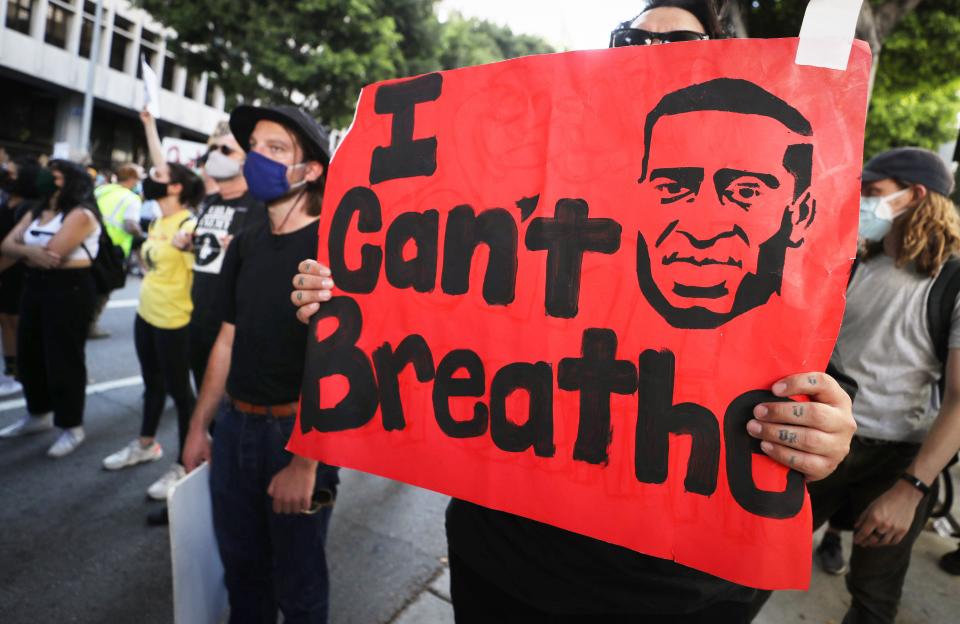George Floyd ‘died from a low level of oxygen’ and had 90lbs of weight on his neck, doctor testifies

A protestor holds up a sign bearing some of George Floyd’s last words: “I can’t breathe,” during a protest in Los Angeles in 2020.
(Getty Images)George Floyd died because his lungs weren’t able to get enough air, impairing the brain and causing his heart to stop, a medical expert testified in the Derek Chauvin murder trial on Thursday.
“Mr Floyd died from a low level of oxygen,” testified Dr Martin Tobin, a lung expert from Loyola University called by the state. “The cause of the low level of oxygen was shallow breathing, small breaths, small tidal volume, shallow breaths that weren’t able to carry the air through his lungs.”
Confirming the cause of Mr Floyd’s death is a central question in the case. The state of Minnesota argues former Minneapolis police officer Chauvin smothered Mr Floyd to death when he kept his knee on his neck for nine minutes during an arrest last May for a counterfeit $20 bill. The defence, meanwhile, suggests a drug overdose and Mr Floyd’s pre-existing heart condition was responsible.
Mr Tobin said four factors caused this lack of oxygen: Mr Floyd was in prone position, he was in handcuffs against hard pavement, there was a knee on his neck, and that there was a knee on his back. Together these forces cut off practically all function in his left lung, according to Mr Tobin.
“Basically on the left side of his lung, it was almost like a surgical pneumonectomy. It was almost like a surgeon had gone in and removed the lung,” the lung expert said. “It’s like the left side is in a vice. It’s totally being totally pushed in, squeezed in from each side,” he added.
In addition to compressing Mr Floyd’s lungs, Mr Chauvin also reduced the amount of air that could come in through a passage in the bottom of the throat called the hypopharynx by kneeling on Mr Floyd’s neck, the lung doctor testified. According to the doctor’s testimony, Mr Chauvin had an estimated ninety pounds of pressure on Mr Floyd’s neck at times.

 money
money 